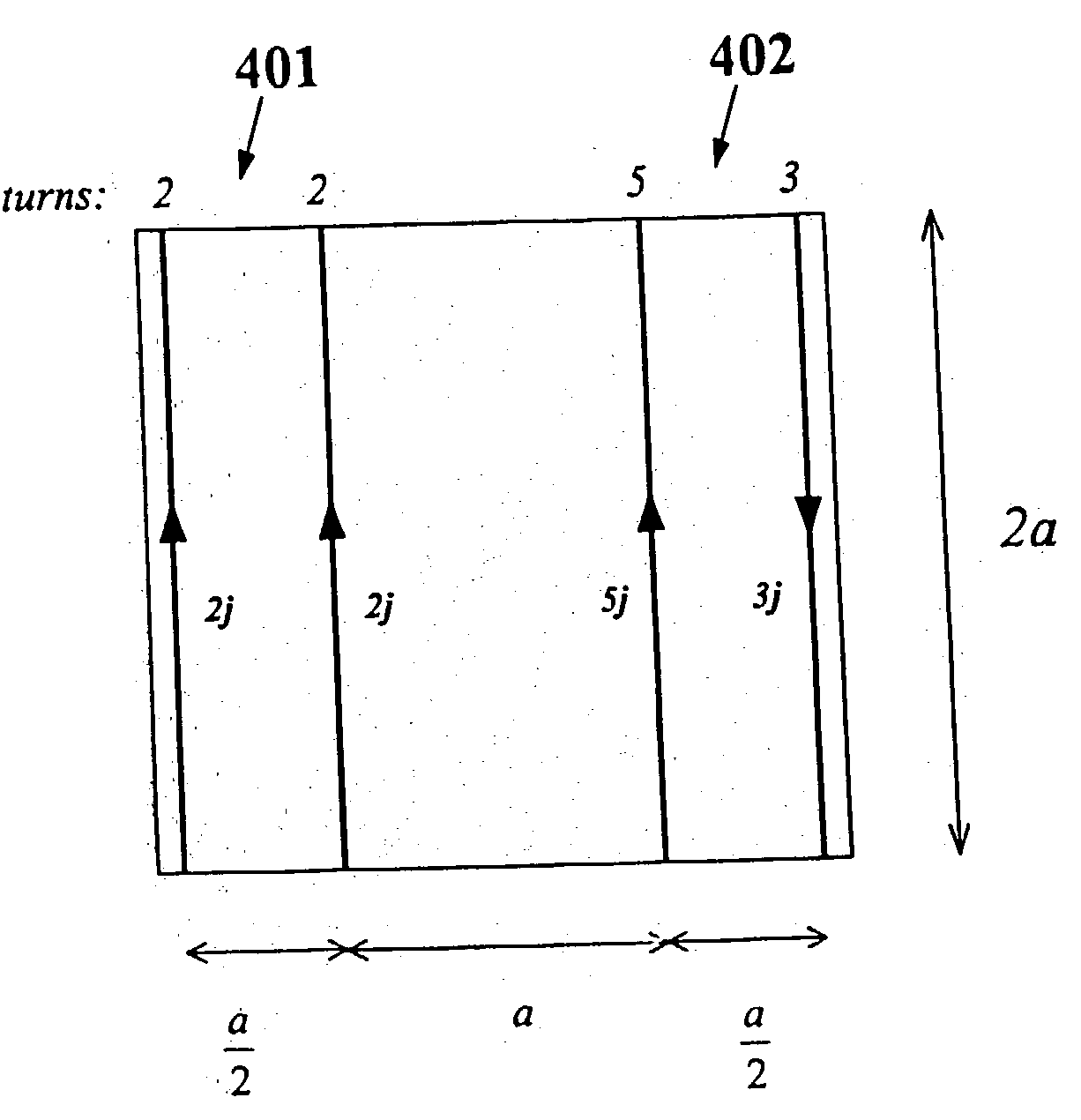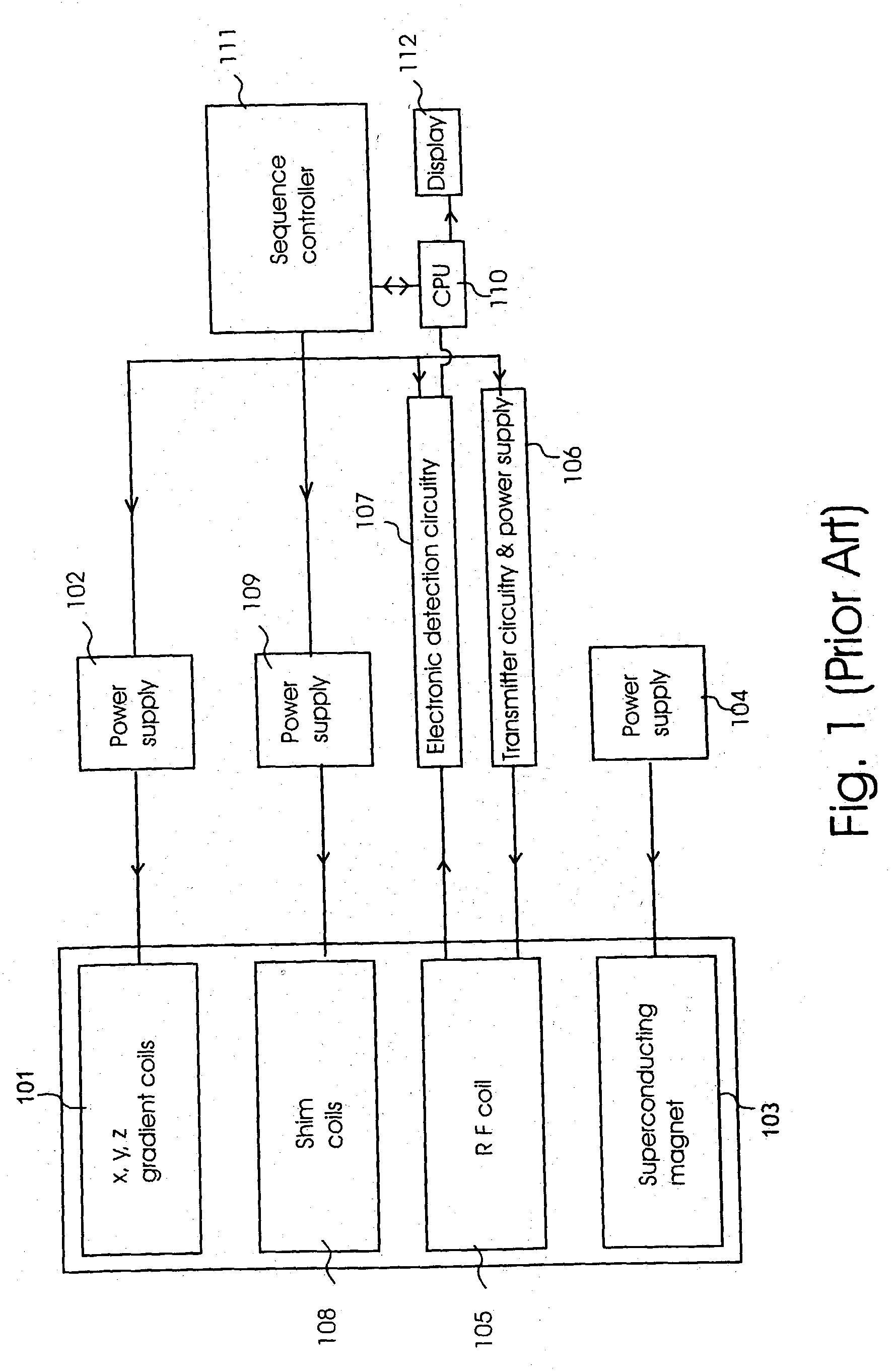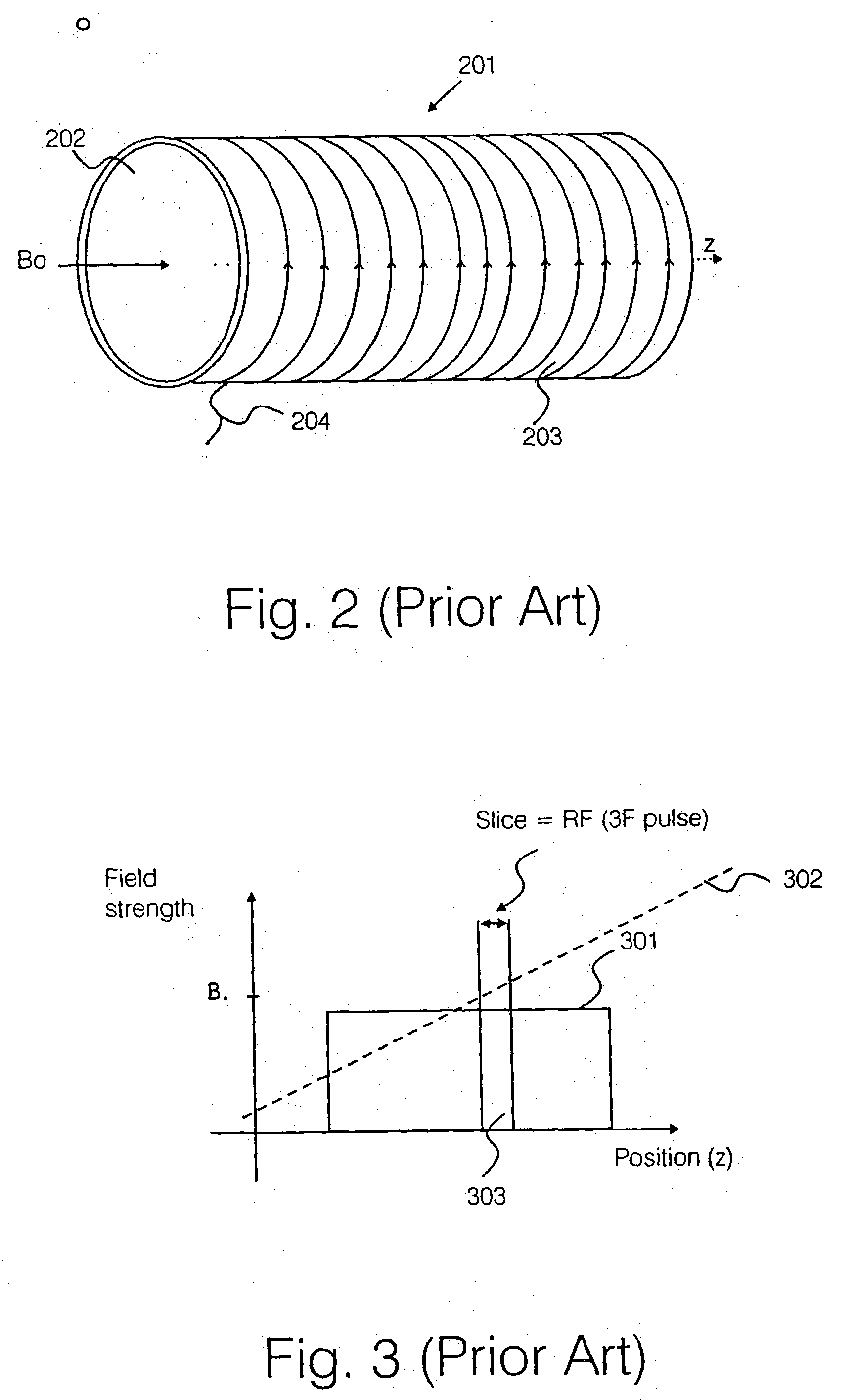Methods & apparatus for magnetic resonance imaging
a magnetic resonance imaging and method technology, applied in the field of methods & apparatus for magnetic resonance imaging, can solve the problems of long overall scan time and motion sensitivity, complex computer processing requirements, and patient expectation of remaining patien
- Summary
- Abstract
- Description
- Claims
- Application Information
AI Technical Summary
Problems solved by technology
Method used
Image
Examples
Embodiment Construction
[0237] There will now be described by way of example the best mode contemplated by the inventors for carrying out the invention. In the following description numerous specific details are set forth in order to provide a thorough understanding of the present invention. It will be apparent however, to one skilled in the art, that the present invention maybe practiced without limitation to these specific details. In other instances, well known methods and structures have not been described in detail so as not to unnecessarily obscure the present invention.
[0238] (1) One-Dimensional MAMBA Magnetic Resonance Imaging
[0239] In order to overcome the problem of presenting image frequency encode aliasing, the inventors of the present invention have found that parallel simultaneous image slices maybe obtained using stepped auxiliary B.sub.o fields within the main B.sub.o magnetic field. The auxiliary fields are required to be uniform B.sub.o regions and are generated using auxiliary field coil...
PUM
 Login to View More
Login to View More Abstract
Description
Claims
Application Information
 Login to View More
Login to View More - R&D
- Intellectual Property
- Life Sciences
- Materials
- Tech Scout
- Unparalleled Data Quality
- Higher Quality Content
- 60% Fewer Hallucinations
Browse by: Latest US Patents, China's latest patents, Technical Efficacy Thesaurus, Application Domain, Technology Topic, Popular Technical Reports.
© 2025 PatSnap. All rights reserved.Legal|Privacy policy|Modern Slavery Act Transparency Statement|Sitemap|About US| Contact US: help@patsnap.com



